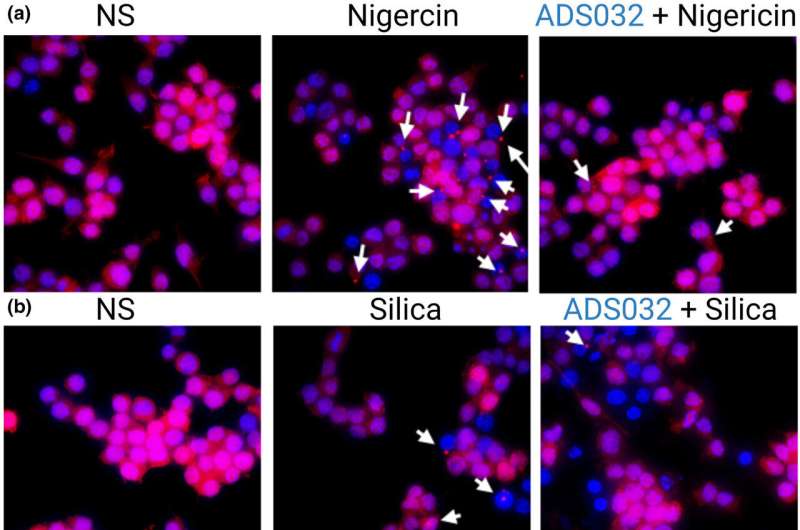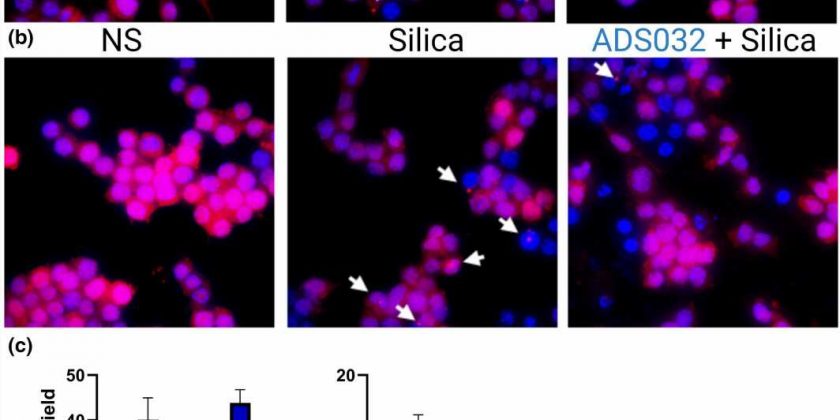
A new class of anti-inflammatory drug is opening a world of possibilities for treating everything from neurological diseases to cancers.
Using technology he developed at Hudson Institute of Medical Research, Associate Professor Ashley Mansell is working with U.S.-based industry partner Adiso Therapeutics to develop treatments targeted to inflammasomes.
This latest research by Mansell has been published in the journal Clinical and Translational Immunology.
Mansell explains that inflammasomes are innate immune sensors that detect disruptions to homeostasis, in other words, they identify when something is wrong and trigger an inflammatory response.
“Inflammasomes are associated with a wide range of infectious and inflammatory diseases, and the ones we are targeting are NLRP1 and NLRP3, because where there is inflammation, then there’s usually one or both involved,” he says.
New anti-inflammatory drug targets fundamental processes
“Inflammasome-associated inflammation is associated with nearly every major disease afflicting humankind. This isoform receptor may target the fundamental process of inflammation associated with these diseases,” says Mansell.
“The drug we have developed through our collaboration with Adiso is called ADS032, the first described dual inflammasome inhibitor and a potential therapeutic to treat both NLRP1 and NLRP3 associated inflammatory diseases.”
The NLRP1 inflammasome can be found predominantly within barrier cells, like skin and bronchial epithelial cells, whereas an NLRP3 inflammasome is found mostly within immune cells such as macrophages and neutrophils, hence the wide applicability of this inhibitor
Adiso Therapeutics is currently running pre-IND studies for submission of ADS032 to the US Food & Drug Administration in 2024 for potential clinical application in respiratory and dermal inflammation.
Anti-inflammatory with potential for a wide range of diseases
Inflammasomes as a druggable target have been undergoing clinical trials for several years.
Compounds that exclusively target NLRP 3 alone are in development for the treatment of neurologic diseases with additional indications also being investigated.
The approach being undertaken by Adiso for ADS032 is fully differentiated, largely due to the dual modulation ability of NLRP 1 and 3 where both the inflammasome isoforms reside.
Mansell says ADS032 shows great potential in the treatment of a wide range of diseases.
“This publication shares insights that are a significant step forward in the development of a new treatment for inflammation, and I am hopeful ADS032 will progress into clinical trials that will ultimately benefit patients with inflammatory disease.
“The development of ADS032 is a wonderful example of what is possible when academia and industry work together to translate the fundamental research we undertake here at the Hudson Institute to ultimately improve patients’ lives,” Mansell says.
More information:
Callum AH Docherty et al, A novel dual NLRP1 and NLRP3 inflammasome inhibitor for the treatment of inflammatory diseases, Clinical and Translational Immunology (2023). DOI: 10.1002/cti2.1455
Journal information:
Clinical and Translational Immunology
Source: Read Full Article
